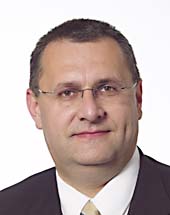
Choisissez la langue de votre document :
- bg - български
- es - español
- cs - čeština
- da - dansk
- de - Deutsch
- et - eesti keel
- el - ελληνικά
- en - English
- fr - français
- ga - Gaeilge
- hr - hrvatski
- it - italiano
- lv - latviešu valoda
- lt - lietuvių kalba
- hu - magyar
- mt - Malti
- nl - Nederlands
- pl - polski
- pt - português
- ro - română
- sk - slovenčina
- sl - slovenščina
- fi - suomi
- sv - svenska
|
| Procedure : 2005/0214(COD) |
| Document selected : A7-0188/2014 | ||||||
Texts tabled : A7-0188/2014 | Debates : PV 15/04/2014 - 13CRE 15/04/2014 - 13 | Votes : PV 15/04/2014 - 17.1Explanations of votes | Texts adopted : P7_TA(2014)0379 | |||
| Verbatim report of proceedings | |
| Tuesday, 15 April 2014 - Strasbourg |
|
| Legal notice - Privacy policy |






















